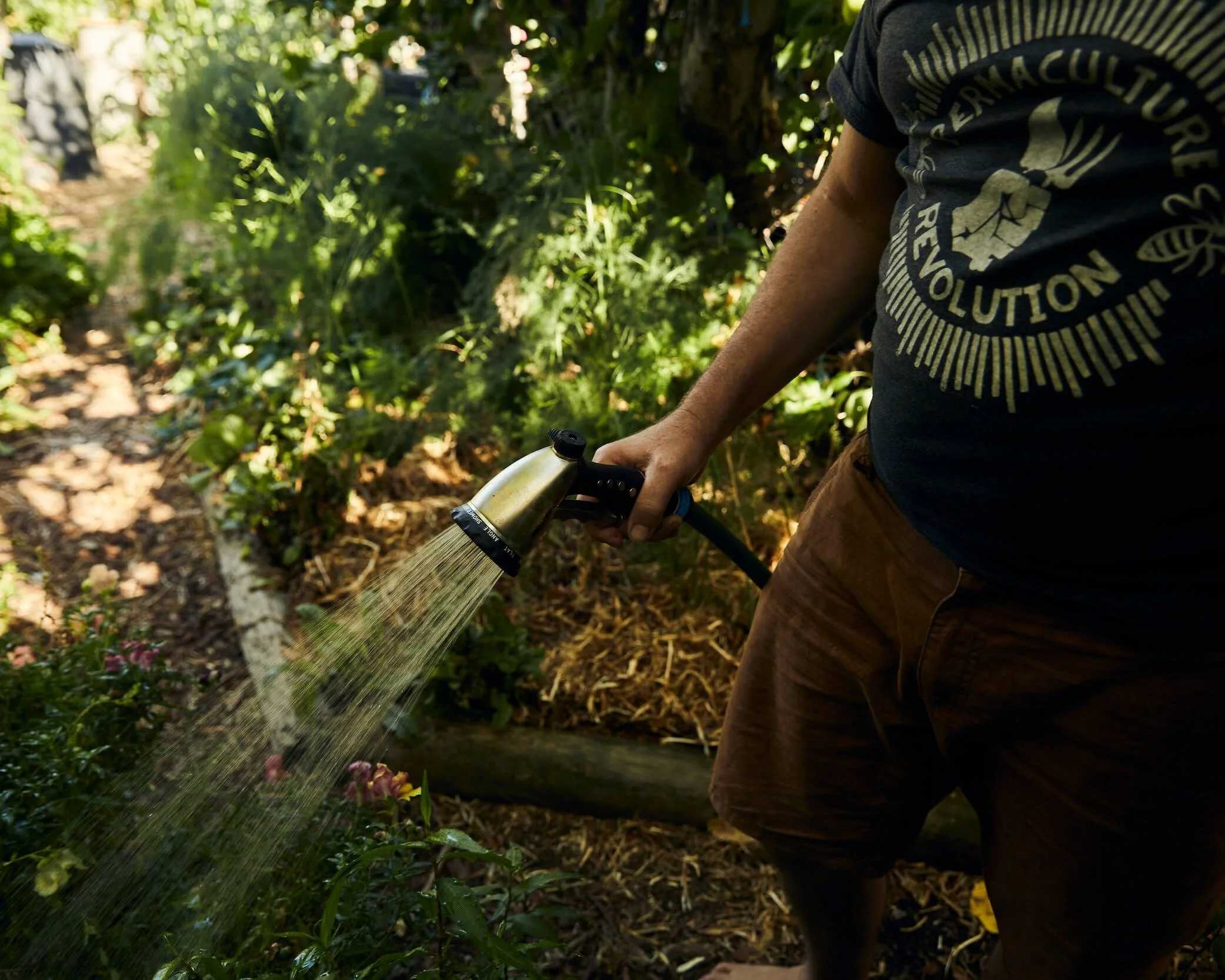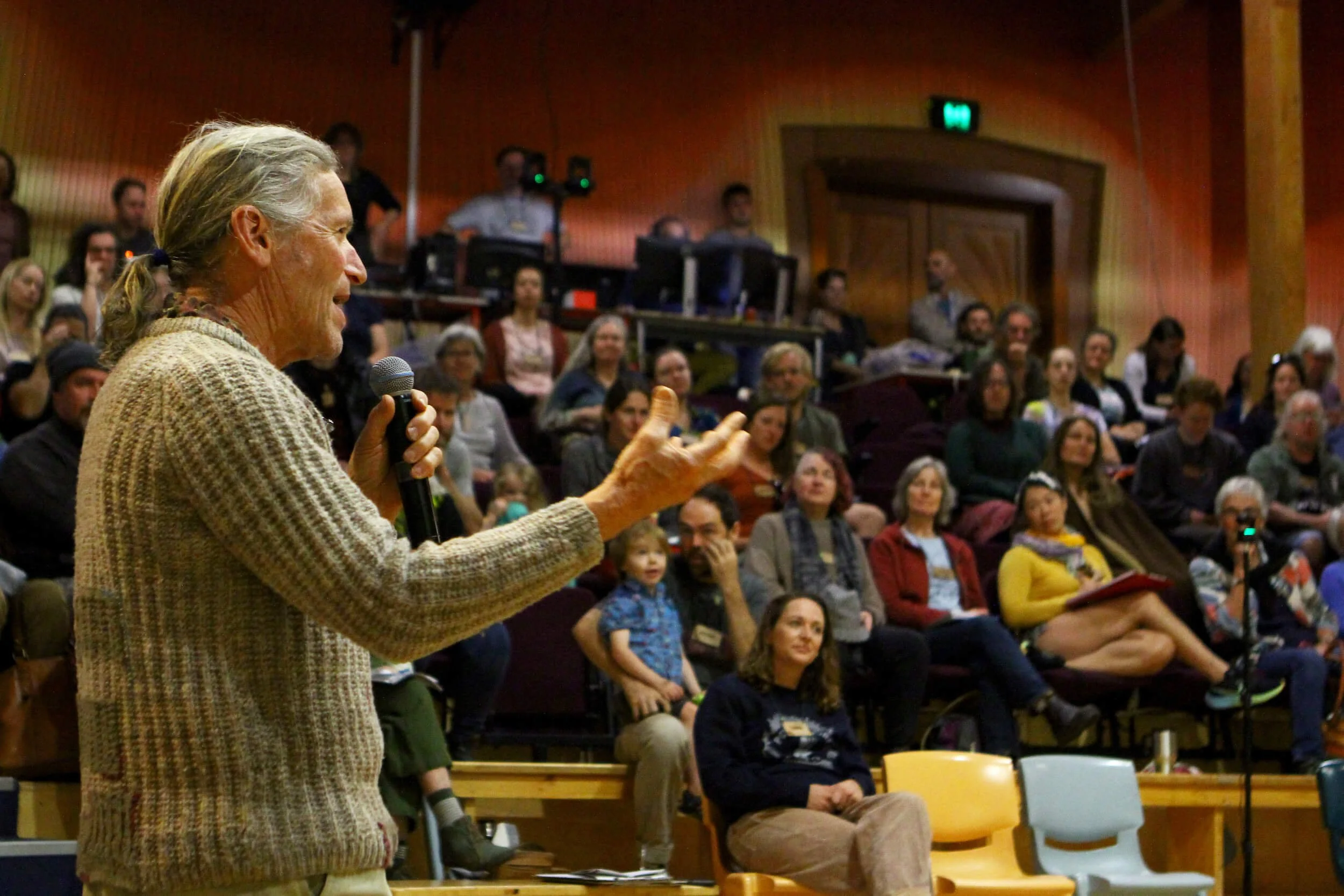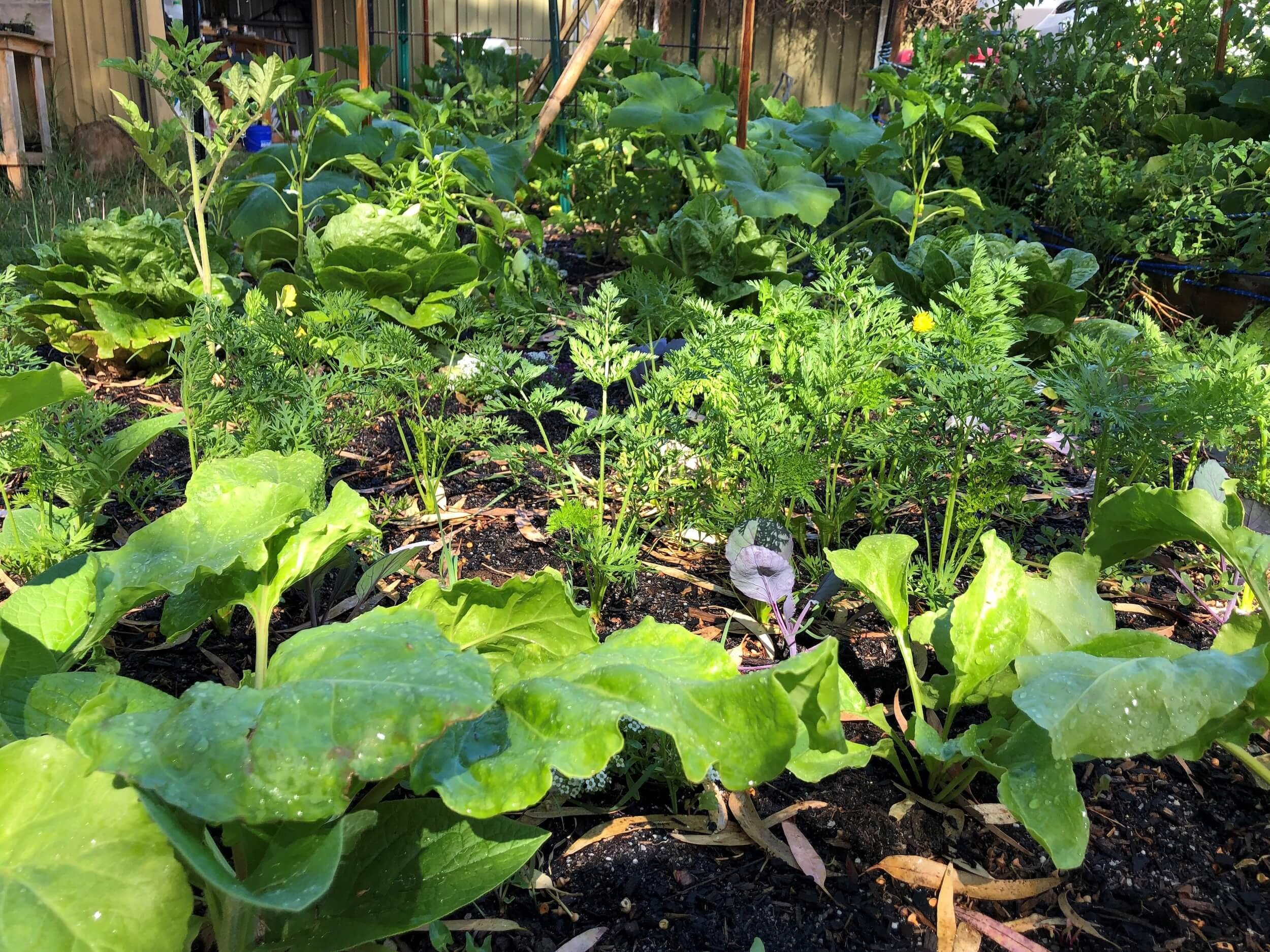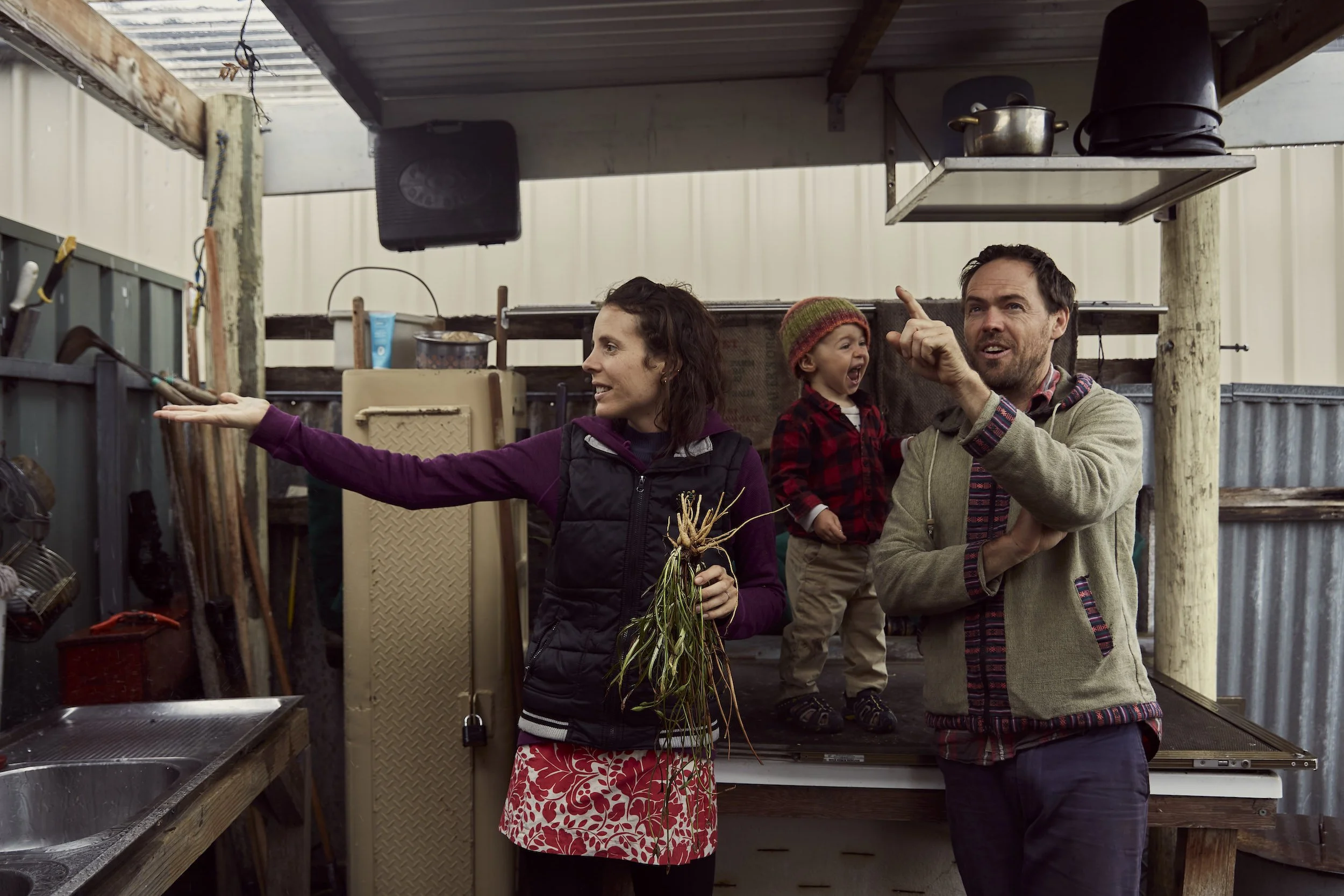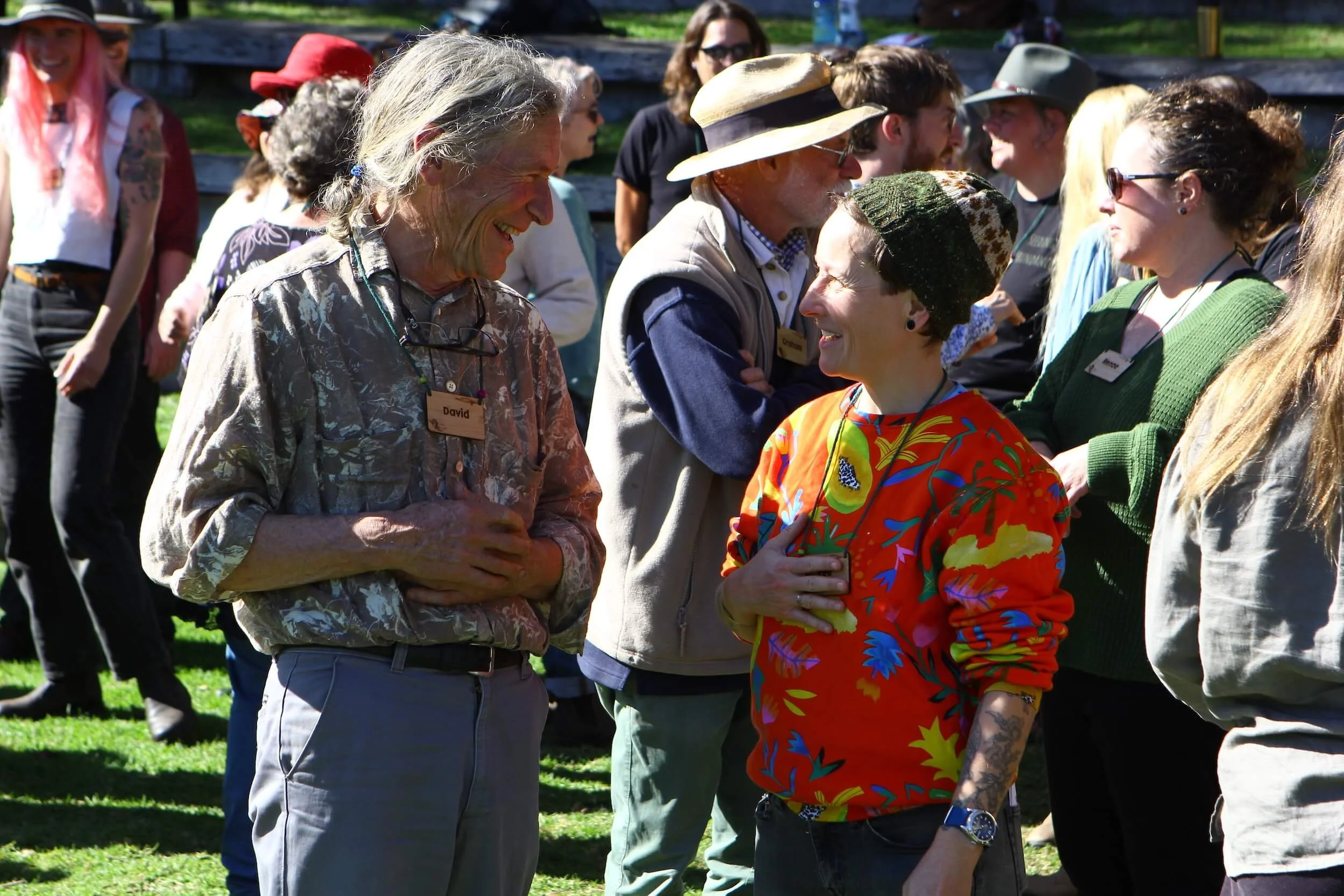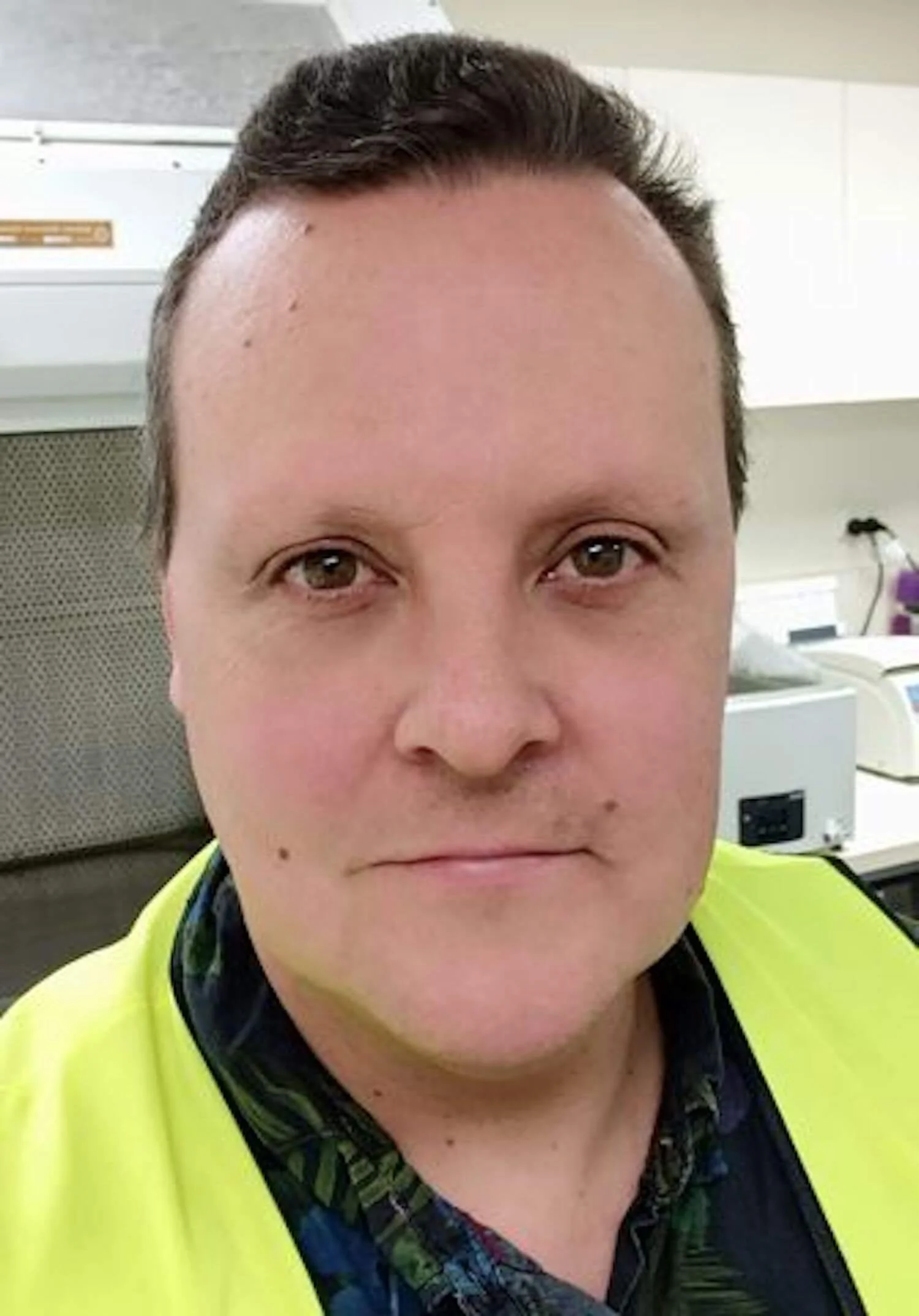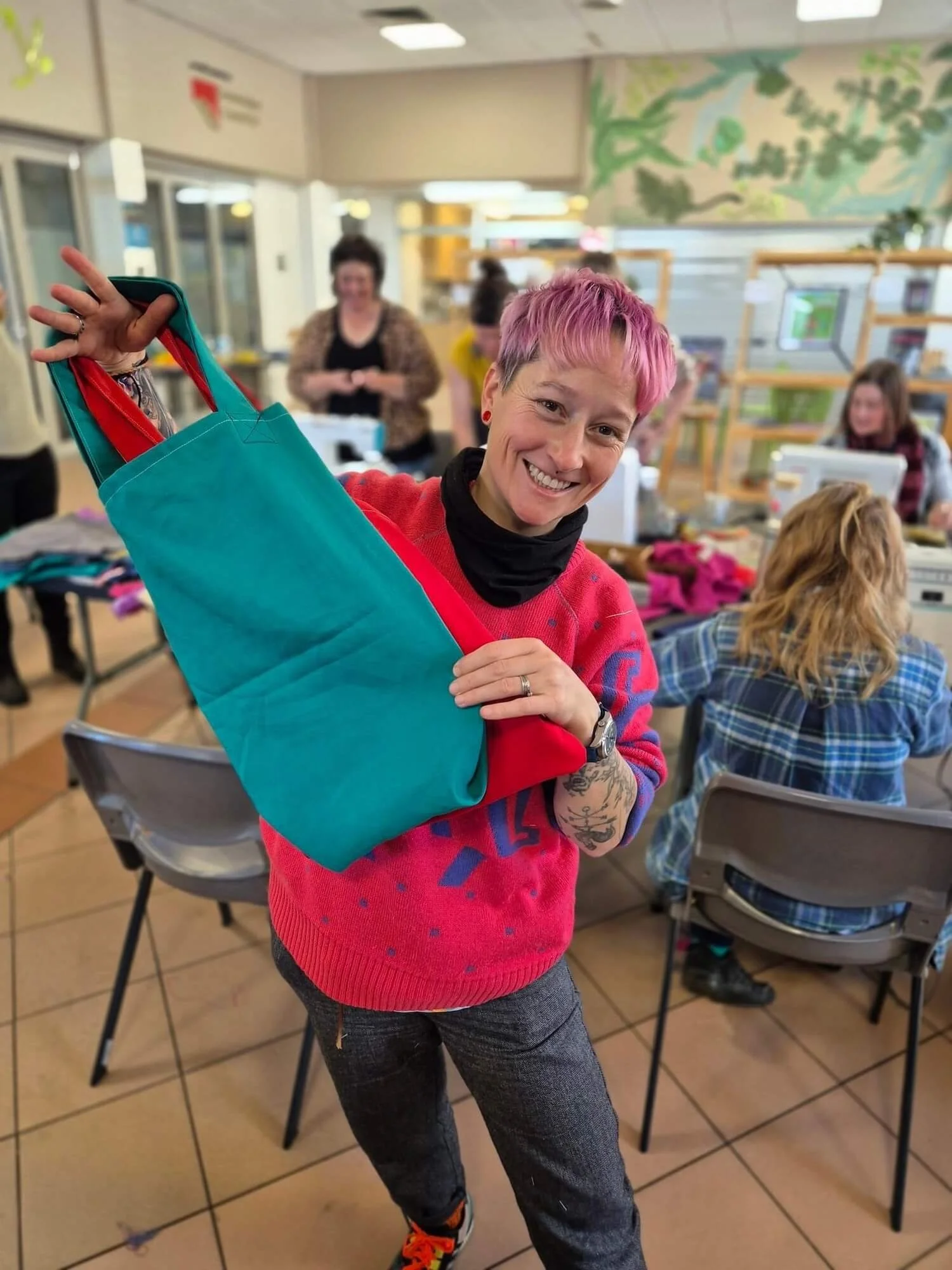What is permaculture?
Looking for a simple definition of what is permaculture? Essentially, it’s a practical design system for creating sustainable ways of living, inspired by nature.
Permaculture is more than just gardening — it’s a design system for every area of your life
Permaculture was founded in the 1970s in Tasmania by Bill Mollison and David Holmgren. The term was originally a blend of the words ‘permanent agriculture‘ and has since been expanded to signify ‘permanent culture‘.
Permaculture is broadly governed by three ethics and 12 design principles. These foundations create a practical design system that can be applied to literally anything, from growing vegetables and building sustainable houses to education, health, financial systems, businesses and even travel, hobbies and communication styles.
Whatever the context, permaculture is always aiming to create systems that will remain sustainable and resilient not only for the present but for many future generations.
Permaculture is a global movement offering local solutions
Permaculture was often initially applied to larger farms and properties, but has been adapted over recent decades to include urban living. Permaculture is now practised right across the planet, from big cities to remote villages and even within refugee camps.
David Holmgren, writing in RetroSuburbia, offers this way to define permaculture: “Permaculture [is] a design system for resilient living and land use based on universal ethics and ecological design principles. Applying permaculture ethics and principles in our gardens and homes inevitably leads us towards redesigning our ways of living so as to be more in tune with local surpluses and limits.”
Here in South Australia, our local permaculture movement harks back to 1984, when our non-profit association began. With members right across South Australia — from the Eyre Peninsula to Mount Gambier and everywhere in between — our state has so many practical examples of how permaculture can be applied locally to create more resilient ways of living.
Permaculture ethics
Earth Care
Earth Care means recognising our planet as a living entity that needs nurturing to thrive. This ethic encourages us to actively protect soil health, forests and rivers, respect ecosystems and reduce our consumption of ‘stuff’. Overall, we are asked to tread more lightly on Earth to help restore the balance that sustains all life.
People Care
People Care begins with looking after ourselves and extends to our families, neighbours and the wider global community. We aim to take care of one another without consuming unnecessary material resources, allowing both people and nature to thrive. This ethic encourages personal responsibility and collaboration, recognising the strength and wisdom of working together.
Fair Share
Fair Share encourages us to live within our means and share in times of abundance. It’s about setting limits, taking only what we need and redistributing surplus to support others. By recognising that continuous growth is unsustainable, we make conscious decisions about what is enough, creating a more balanced, generous and sustainable way of living.
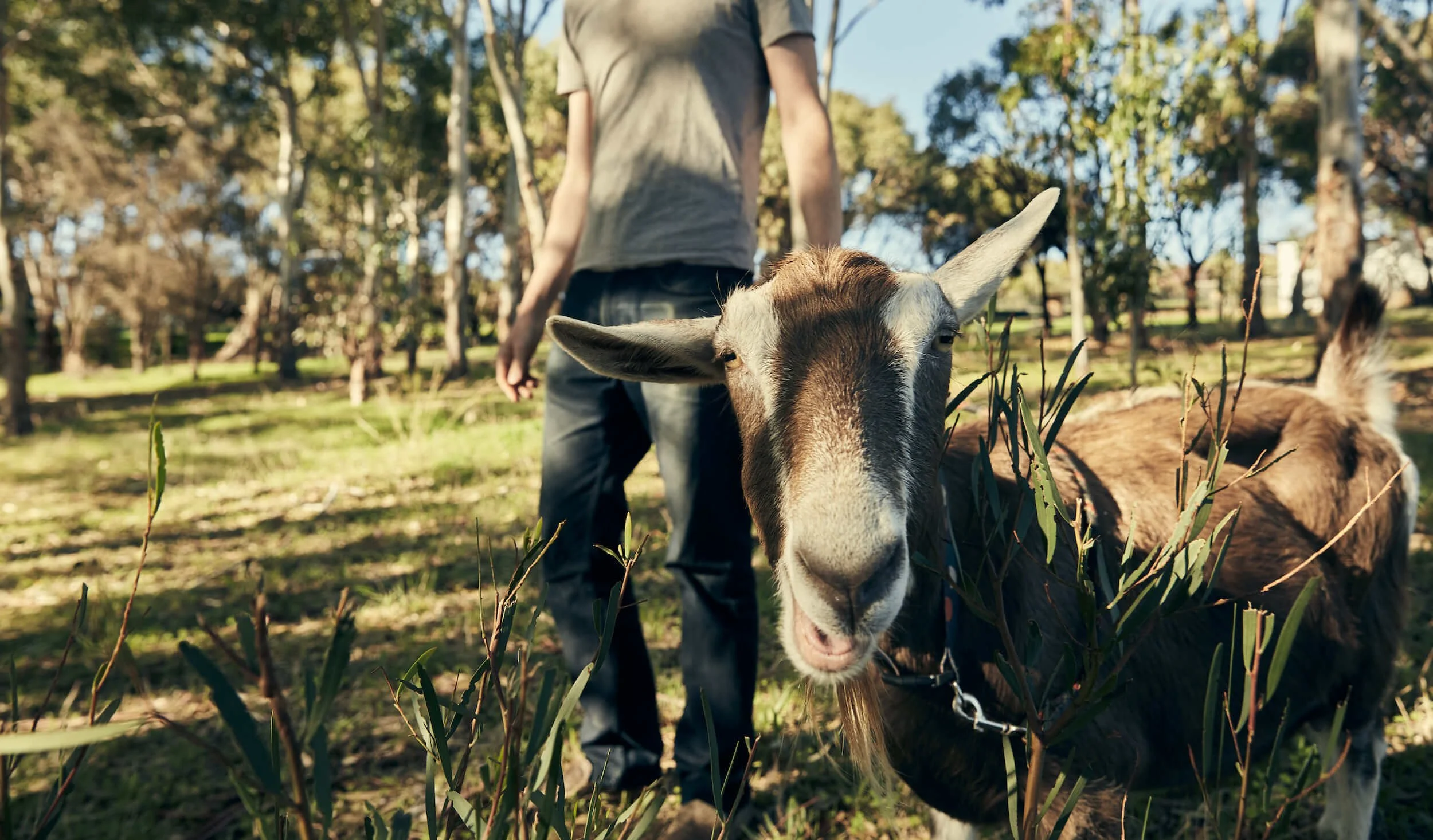
Become part of a community sparking positive change across SA.
Become part of a community sparking positive change across SA.
Section Styles marquee-sub-heading
What is permaculture in South Australia?
Exploring our local history and impact
Back in 1983, Bill Mollison visited Willunga for one of the first iterations of permaculture teaching — the refined structure of which would eventually become the now globally recognised Permaculture Design Certificate (PDC). It was suggested that a local action collective should be created here in SA.
The following year, in 1984, the Permaculture Association of South Australia (PASA) was officially founded by Colin Ball, Greg Jervis, Bill Mansell, Joyce Parkins and Helen (Singleton) Turner.
Their collaborative efforts resulted in a constitution adopted at the first AGM at Immaculate Heart of Mary Primary School in Bowden.
It’s believed that Permaculture South Australia was the first state-based permaculture association to be founded in Australia.
Key SA moments
Work
Our
-
Skills and knowledge sharing
We run workshops, events and gatherings that make permaculture accessible to everyone. Through hands-on learning and guidance, we equip South Australians with the skills and knowledge to create sustainable and regenerative homes, gardens and communities.
-
Community connection
We foster a vibrant network of permaculture enthusiasts across South Australia. By supporting local groups, hosting events and creating opportunities for collaboration, we help people connect, share ideas and work together to create more sustainable ways of living using permaculture design.
-
Climate-positive action
Permaculture is about doing, not just learning. We help South Australians understand how to use permaculture design as a powerful and practical tool for transitioning to more sustainable and regenerative ways of living, both locally and globally.
Meet the PSA Committee
Our committee meets once a month online to organise activities supporting the PSA mission. Committee positions are voluntary, year-long, open to paid members and elected during our Annual General Meeting. If you’re interested in joining the committee, please contact us.
-

Emily Gray
Co-Chair
Emily is an environmental educator, teaching Reception to Year 6 children a joyful blend of hands-on gardening, exploration and outdoor play. She completed her Permaculture Design Certificate in Darwin at age 23 and enjoys being part of a global community working together to create positive change. She also loves bushwalking, camping, lino-printing and cooking produce from her Forestville garden.
-

Nat Giffney
Co-Chair
Nat is passionate about native plants and local ecology. She loves supporting biodiversity and its benefits for us, our health, our food gardens, animals and the planet. With volunteer experience on permaculture farms across Australia, Nat has been an active member of the Permaculture SA Committee since 2020, helping to organise the APC in 2023 and SAPC in 2024. She’s known for her fun, positive and can-do attitude.
-

Scott Grimes
Co-Treasurer
Scott discovered permaculture during Melbourne’s 2020 lockdowns. After moving back to the Adelaide Hills, he's enjoyed the opportunity to practically apply permaculture principles and design to both his veggie patch and his overall lifestyle. As a finance and management professional, Scott also brings this skillset to ethically aligned organisations.
-
Mark Brown
Co-Treasurer
Mark’s interest in permaculture began while working as an agricultural research officer at CSIRO. Passionate about urban food ecosystems, he grows fruit and nut trees with a berry understory at his home in Adelaide’s western suburbs. Mark is a long-time Permaculture South Australia committee member and has served in multiple roles over the past decade.
-
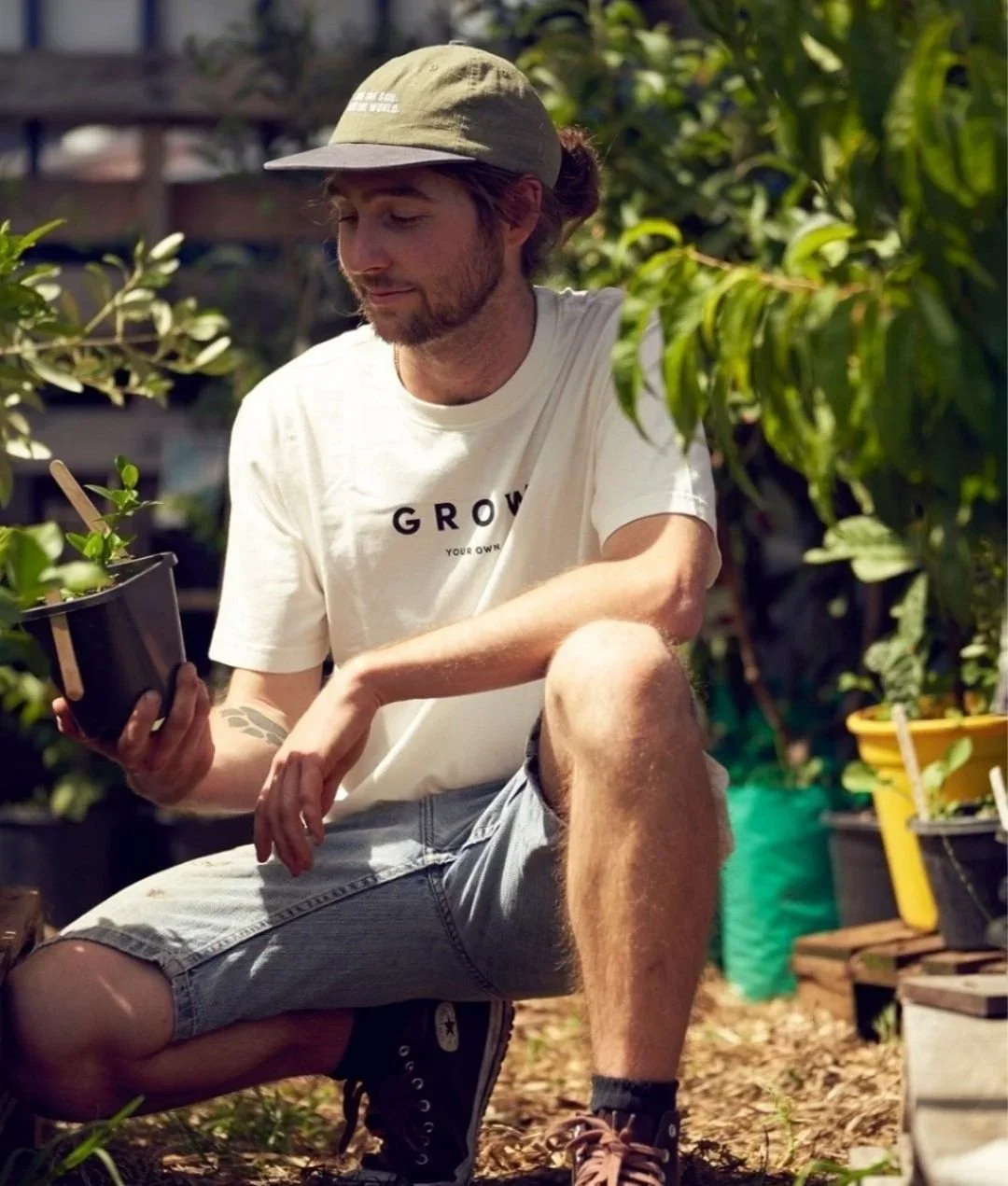
Kym Ormond
Co-Secretary
Kym is a self-proclaimed ‘plantaholic’ who discovered permaculture while volunteering in WA in 2016. He went on to study Certificate III and IV in Permaculture. Kym now runs sustainable living workshops across Adelaide, and is co-owner of the indie permaculture plant nursery, Nomad Nursery. Kym is known for his endless puns and willingness to lift heavy things at events.
-
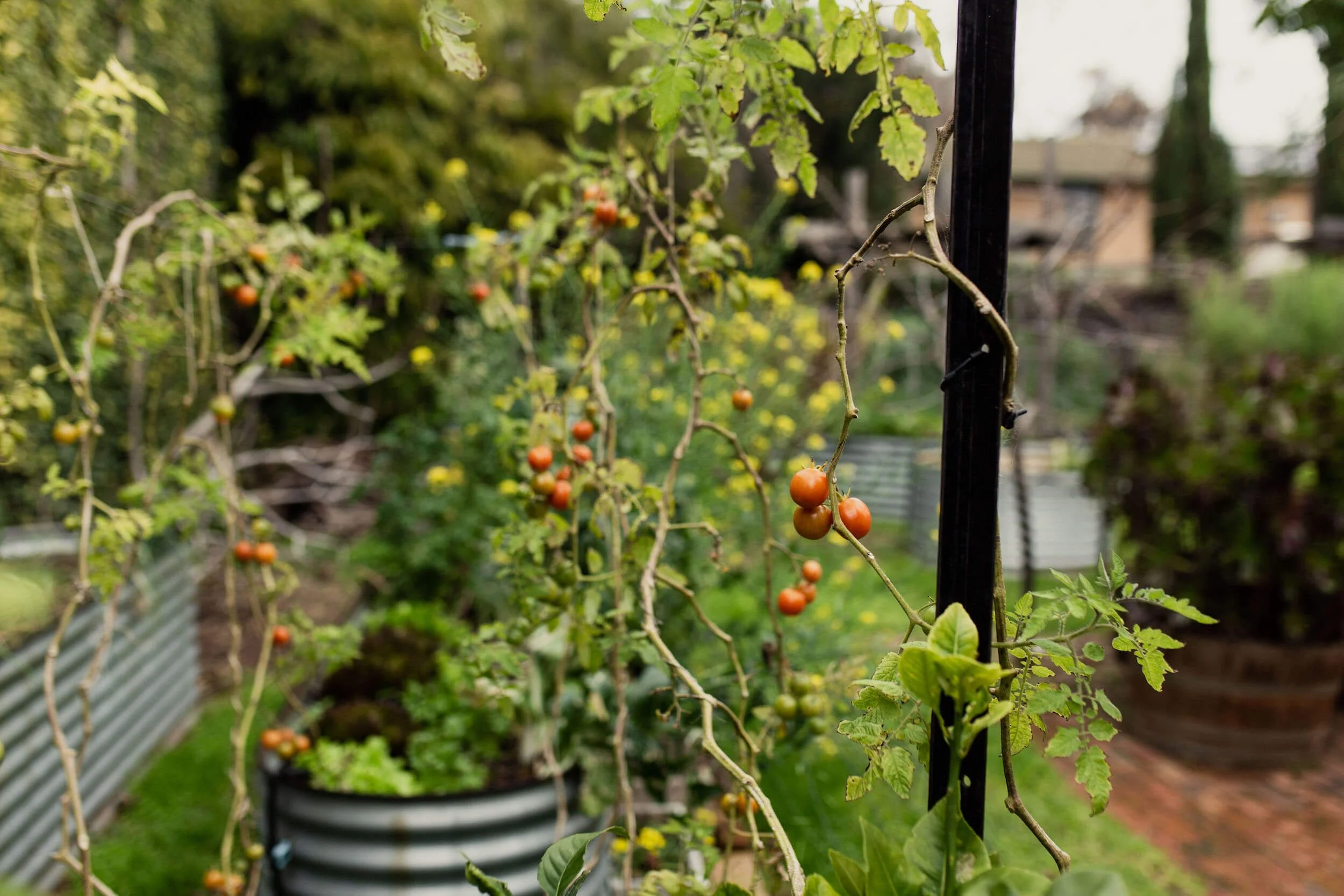
Gus
Co-Secretary
Gus is a parent, cyclist, musician, engineer and scientist who sees permaculture as a powerful tool for a thriving future. He completed his Permaculture Design Certificate in 2011. With a background in energy efficiency and cycling advocacy, Anugs brings strong organising skills, teamwork and a deep understanding of technology’s potential and limitations within sustainable systems.
-
Violaine (Vee) Buyer
Public Officer
Vee is a nature lover, gardener, cook and sewer, and a designer by trade. After completing her Permaculture Design Certificate at The Food Forest in 2021, Vee has continued learning through permablitzes and workshops, integrating permaculture principles into daily life. She's also a dedicated committee member of her local permaculture group, Grow West. -
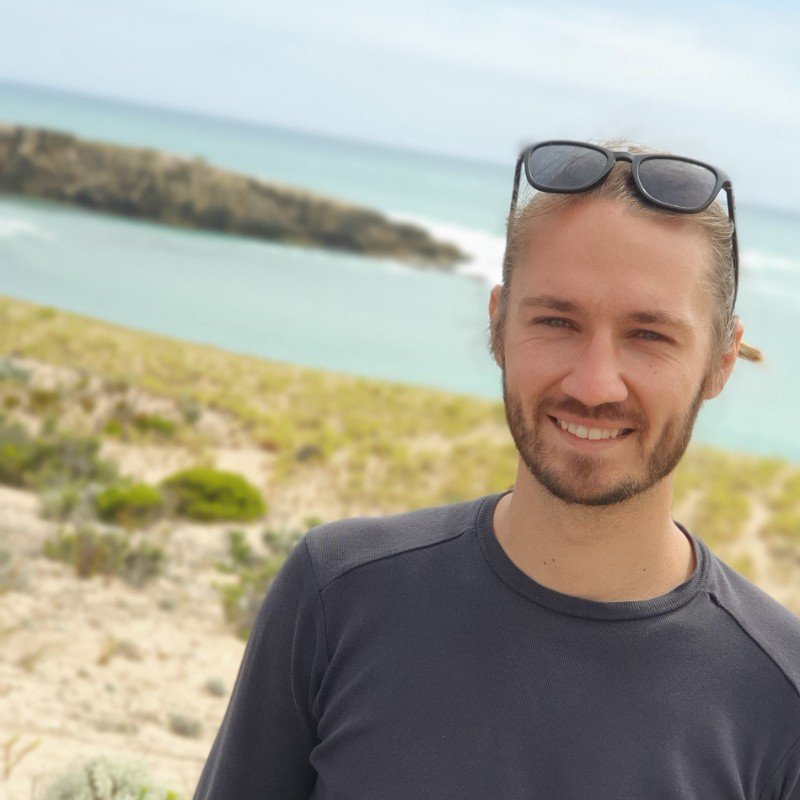
Aaron Danicek
Aaron is a young entrepreneur leading a nature-based events company supporting children with disabilities, employing 60+ staff across three states. With experience in marketing, governance, events, finance and operations, he brings valuable practical skills to the table. A self-confessed permaculture hippy with a 2.5ha block in Belair, he’s eager to keep learning and contribute meaningfully to the permaculture community.
-
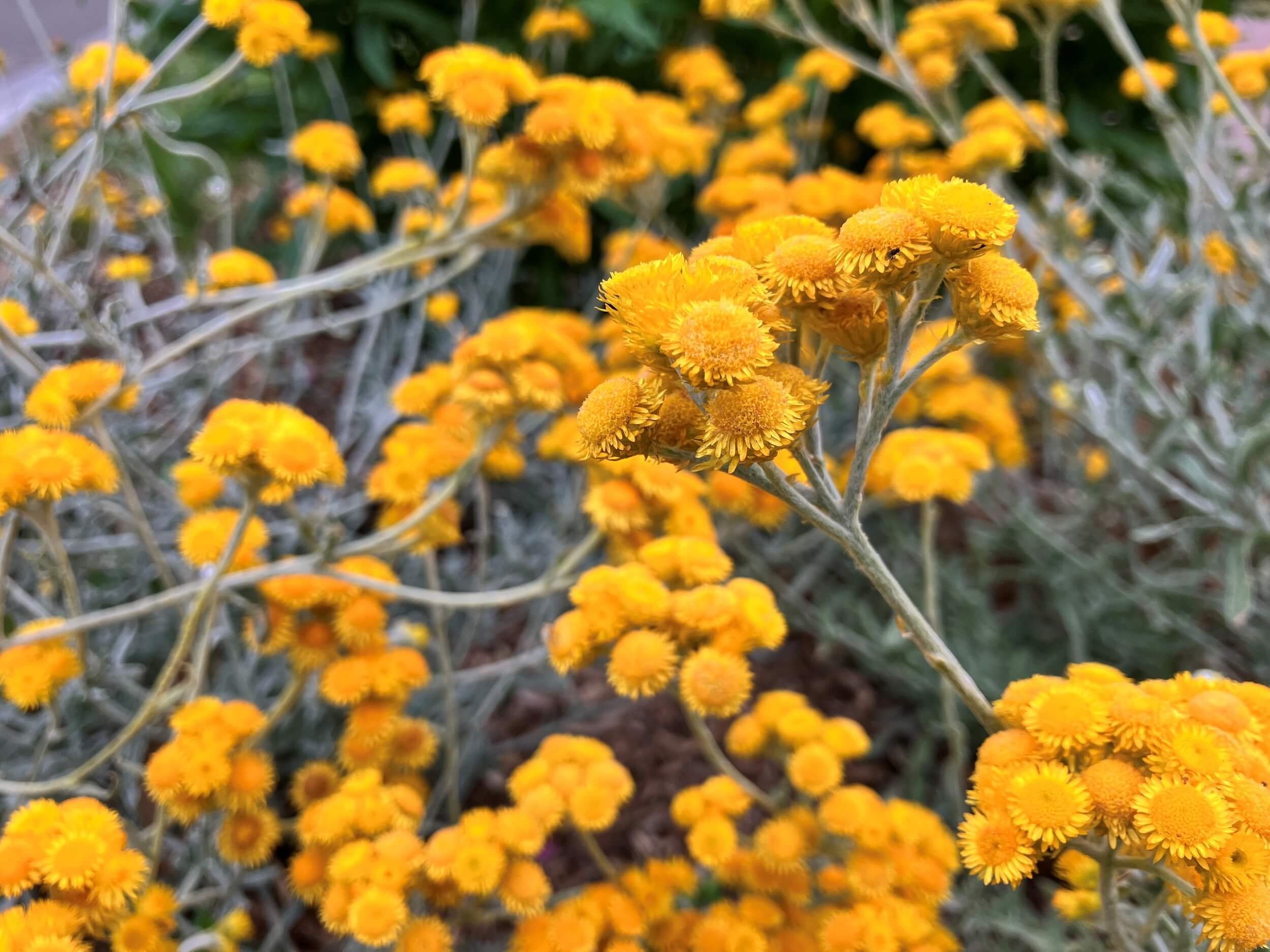
Jacob
Jacob is a green thumb with a deep interest in People Care, inclusivity and connection to community and the environment. As a social worker, he brings strong skills in creating welcoming, grounded spaces for conversation and differing opinions. Jacob also has experience in online communications, graphic design and photography, and has completed his Permaculture Design Certificate.
-
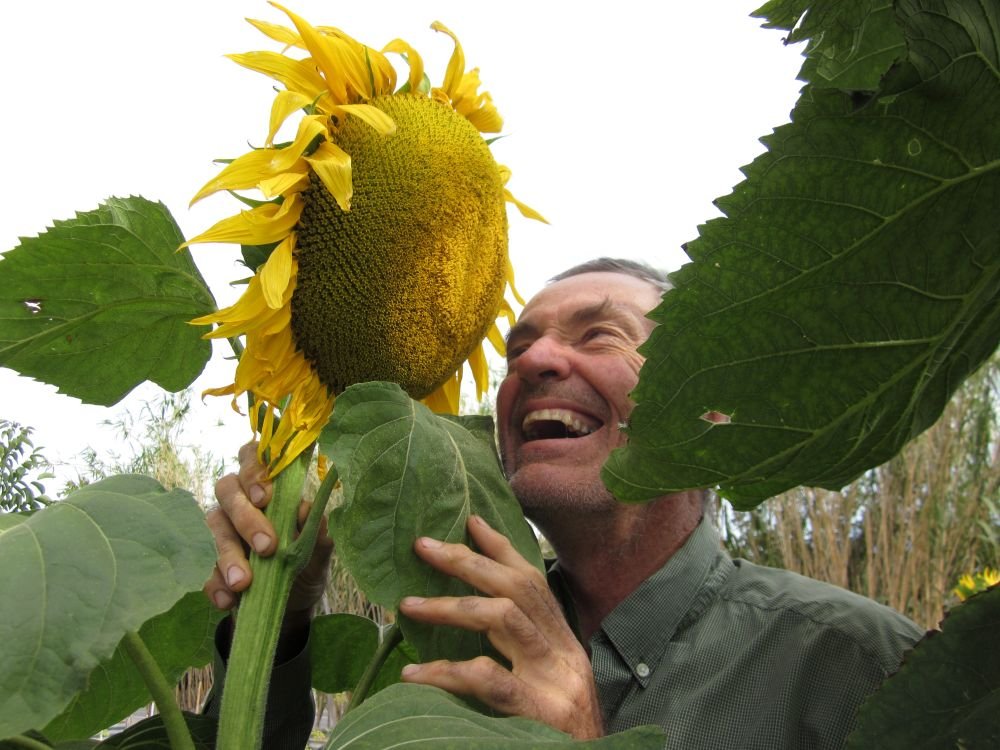
Jasper Simmons
Jasper is a creative, flexible and community-minded retiree with a wealth of experience in permaculture education and event management. A seasoned facilitator and presenter, Jasper has taught permaculture across TAFE, university and community settings, and actively supports youth engagement in the movement. He also brings an “unlimited supply” of icebreaker activities to any and all events!
-

Lachlan McKenzie
Lachlan is a lifelong garden and nature enthusiast with nearly 30 years of experience in permaculture. As a practitioner, designer, teacher, author and advisor, he has worked across Australia and internationally, from Timor-Leste to Europe, collaborating with grassroots groups, national associations and non-profit groups including Permatil Global. Lachlan is also a much-valued former Chair of Permaculture SA.
-

Michelle Jahn
Michelle grew up with farming roots and parents passionate about horticulture, sparking her love for plants from a young age — her earliest gardening memories are from age three. Now a garden specialist at Hampstead Primary School, Michelle manages a ¼-acre permaculture garden, blending her organic gardening knowledge with sustainable practices.
Join the movement
Join the movement
Section Styles marquee-heading
Whether you're perma-curious or a seasoned permaculture practitioner, we invite you to join our movement — helping connect communities, share knowledge and ideas, and create meaningful change through practical, hands-on local solutions.

